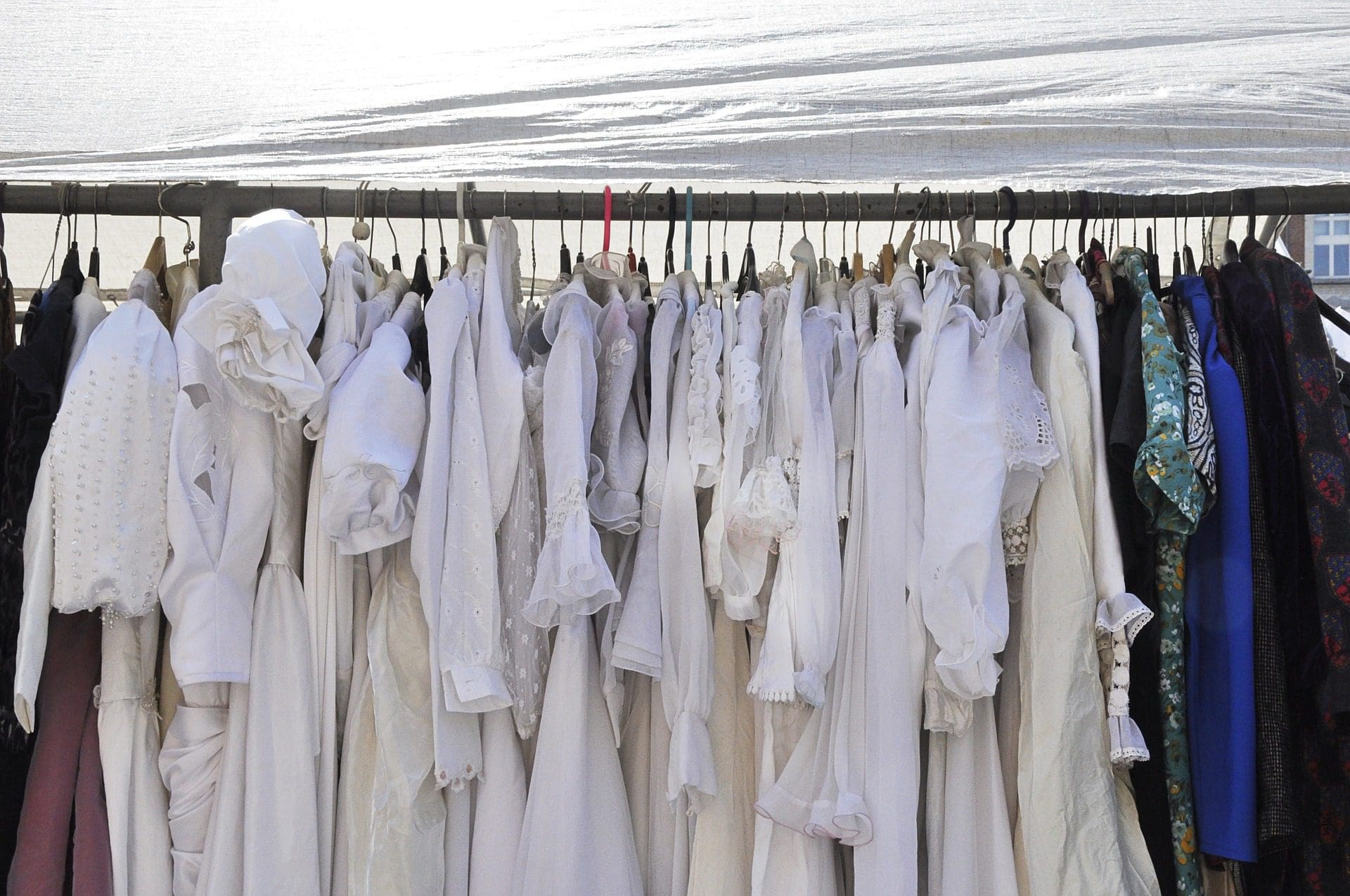Post photo: Secondhand | © Benjamin Brandt on Pixabay
I'm happy to admit that I'm not a dressman myself and was always very happy that my employer made it very easy for me to choose my clothes.
Even today I wear my clothes until they either fall off my body or I can't find them in the closet anymore; I have a strong suspicion that my wife cleans up every once in a while, although I've never been able to catch her in the act.
I had my best experience when buying clothes in Africa, when I unexpectedly needed civilian clothes there and was then able to get them in a slum department store of unimaginable size. I could hardly believe my eyes and would certainly have found all my old clothes if only there had been a little more time to search. Months later, when I proudly presented the new treasures to my better half, she just wrinkled her nose and they magically disappeared from my closet.
Recently, I was even able to have a low shoe resoled that I bought used by the Bundeswehr in 1983. And thanks to the excellent service from Meindl already several years under his belt.
So it's probably not surprising that I can't get anything out of the hype about new and more unusual clothes. I'm also happy that my better half has always liked to wear secondhand, because only if everyone restricts themselves a little can you change something in the world.
No matter how you feel about fashion, whether it is a life-determining means of self-realization or an imperative to make a career, one thing is undisputed, we have far too many items of clothing in the shops, in our own closets , in stock or even heaps. The flood of clothes, which mostly flows to us from Asia very cheaply and ultimately ruins the clothes producers in the poorer regions of the world, is neither sustainable nor makes sense from a macroeconomic point of view.
But you also have to admit that a lot of people are now earning money from this waste, mostly fellow citizens from long-established industrialized countries. Only at some point someone ultimately has to foot the bill for such economies. Anyone who thinks that it's not us is terribly mistaken. Just an example from my own experience.
About ten years ago I met a fashion designer with her own factory in Africa. She was successful and regularly organized well-attended fashion shows with a friend. Ten years later she now lives in Bavaria and her friend in the UK. Both fell victim to our flood of clothes to Africa and their only option was to flee to Europe in order to survive; In unison, both would still rather earn their own living at home in Africa than having to "beg" in Europe.
Recognizing this for years, we should all actually change course. Unfortunately, most of us believe that we are not doing anything wrong ourselves, nor that we have to do without anything at all.
The really good thing about changing course in terms of the flood of clothes is that almost nobody would have to go without and even the cheap producers would have enough time to adapt their business models to the new circumstances, especially since this process would take several years, if not longer.
I call my suggestion “clothing alliance” and I also believe that this could first work locally and later be well networked with each other.
We should strengthen the existing second-hand market, make it more attractive and link the different trade models in such a way that, on the one hand, those who depend on them benefit and, on the other hand, the clothing waste that is actually present is not exported but taken off the market and thus as far as possible can be used as a raw material for other products.
Good items of clothing also have a resale value for the consumer and thus become a widely recognized commodity, which in turn increases the overall acceptance of second-hand among users.
This increases the quality of the goods and reduces the quantity in the medium to long term, although I suspect that the high profit margins will flow from the large producers and traders to the middlemen and thus create a crisis-proof market.
The clothing alliance I intend to continue to collect the clothing with its participating companies, foundations, organizations, churches and clubs in a decentralized manner, sort it (waste or clothing), catalog the pieces and make them available on a common digital platform. This ensures that good items of clothing find their buyers and don't rot in some basement for years.
Customers of aid organizations are automatically discounted when shopping and the items of clothing may be delivered to the nearest shops, points of sale or collection points. There is also the option of having the clothes sent to your home at your own expense.
If the whole thing is then attractively advertised, presented and sold on a website, other groups of buyers, who are also very solvent, will certainly be added, because you cannot tell from a good piece of clothing whether the wearer has had it for two decades or how many happy previous owners have already owned it have previously worn.
"Over the years I have learned that what is important in a dress is the woman who is wearing it."
Yves Saint Lauren (1936-2008)





